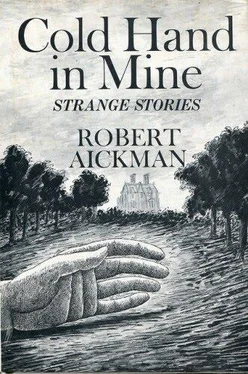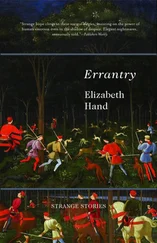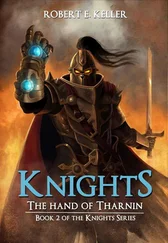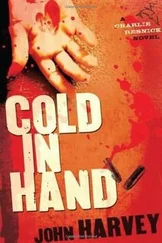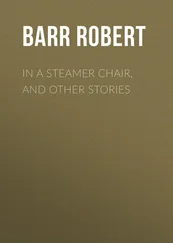"It was somewhere about here," said Hilary. "Certainly on this side."
"I should have said it had all changed so much that we were unlikely to get far without comparative maps. None of these houses can be more than ten or twelve years old."
They varied greatly in style: from Cotswold to Moroccan, from Ernest George to Frank Lloyd Wright. Some seemed still to value seclusion, but more went in for neighbourliness and open plan. Despite all the desperation of discrepancy, there was a uniformity of tone which was even more depressing.
"I agree that my place has disappeared," said Hilary. "Been built over. Of course it was pretty far gone even then."
The houses were served by a rough road, almost certainly "unadopted". It assured them a precarious degree of freedom from casual motor traffic.
One of the biggest houses was in the Hollywood style: a garish structure with brightly coloured faience roof, much Spanish ironwork, mass-produced but costly, and a flight of outside steps in bright red tiles. The property was surrounded by a scumbled white wall. Hilary and Callcutt stared in through the elaborate, garden-of-remembrance gates.
"It's like a caricature of the old place," said Hilary. "Much smaller, and much louder — but still. ."
The windows were all shut and there was no one in sight. Even the other houses seemed all to lie silent, and on the rough road nothing and no one passed. The two men continued to peer through the bars of the gate, ornate but trivial.
From round the back of the house to their left emerged, in like silence, a large, moulting, yellow dog. They could hardly even hear the patter of its large feet on the composition flagstones.
Hilary said nothing until the dog, which originally they saw head on, had turned and, with apparent indifference to them, displayed the full length of its right flank. Then he spoke: "Bogey," he said, "that's the same dog." Callcutt was known to his intimates as Bogey, following some early incident in his military life.
Callcutt thought before speaking. Then he said: "Rubbish, Hilary. Dogs don't live twenty years." But he wasn't quite sure of that.
"That one has."
But now the dog began to bark, growling and baying most frighteningly, though, as on the previous occasion, not coming right up to the gate, or attempting to charge at them. If the fact that, a moment before, it seemed not to have seen them, might have been attributed to extreme senility, there was nothing remotely senile about its furious, almost rabid aggression now; and even less, perhaps, about the calculating way it placed itself, whatever might have been the reason. It stood a shapeless, sulphurous mass on its precisely chosen ground, almost like a Chinese demon.
"That is just what it did before," Hilary shouted above the uproar. "Stood like that and came no nearer."
"If you can call it standing," Callcutt shouted back.
He was appalled by the dog, and did not fail to notice that Hilary had turned white, and was clinging to the decorative gatebars. But in the end Callcutt looked upwards for a second. He spoke again, or rather shouted. "There's a wench at one of the upstairs windows. We'd better clear out."
Before Hilary had managed any reply, which the barking of the dog in any case made difficult, there was a further development. The glass-panelled front door of the house opened, and a woman walked out.
Perhaps she had emerged to quiet the dog and apologize, perhaps, on the contrary, to reinforce the dog's antagonism to strangers: to Hilary it was a matter of indifference. The woman was of about his own age, but he knew perfectly well who she was. She was the grown-up Mary Rossiter, who twenty years before had been killed by a dog, probably a mad dog, possibly a dog that had been shot, certainly a most unusual dog, this very present dog, in fact.
Whatever he felt like, Hilary did not pass out. "Do you mind if we go?"
He withdrew his gaze and, without really waiting for Callcutt, began to walk away sharply. Again, it was somewhat as on the previous occasion: veritably, he was behaving exactly as a small boy might behave.
He did not pace out along the rough road, past the houses. Instead, he walked straight into the dilapidated public forest. Callcutt had almost to run after him, in a rather absurd way.
Hilary could not be unaware that while he retreated, the dog had stopped its noise. Perhaps he had even gone far enough to have passed beyond earshot, though it seemed unlikely. None the less, it was quite a chase for Callcutt, and with the most uncomfortable overtones.
Hilary pulled himself together quite quickly, however — once more, as before; and was even able to tell Callcutt exactly what he had apprehended — or, as he put it to Callcutt, fancied.
"I'd have taken to my heels myself, I promise you that," said Callcutt.
"I know it was Mary," said Hilary. "I know it."
They remained silent for some time as they walked over the patchy, tired ground.
Then Callcutt spoke. There was something he could not keep to himself, and Hilary seemed all right now.
"You know how we were laughing about the names of those houses? Samandjane, and Pasadena, and Happy Hours, and all that; the executive style. Do you know what the doggy house is called?"
Hilary shook his head. "I forgot to look."
"You wouldn't believe it. The name above our heads was Maryland."
Before it is too late, I set out the events exactly as I recall them.
I seem to recall them very well, and they were not of a kind easily forgotten; but amnesia is, I know, more likely to play a part in my tale than exaggeration. As a matter of policy, I am determined to damp down, to play down, to pipe down. I am a man of the twentieth century as much as anyone else.
Of course when it comes to carrying conviction, I make a bad start by being an author. "After all, he is an author!" I remember my grandmother saying when I anxiously questioned her about a particularly improbable tale Maurice Hewlett had told at her tea party that afternoon. I daresay it is precisely because I have sometimes made small sums of money with my pen that I have not related before now this story that is true.
And really with my pen. With this very pen in fact; and I was using the same pen when a year or two after the war (the real war — the first one), I took up my abode at the top of a house in Brandenburg Square. Fountain pens could then be had that were designed, positively, to last at least one lifetime.
I have faintly disguised the address because it is potentially libellous to designate a named house as haunted. I believe mine to be the narrative of a haunted man rather than of a haunted house, but after so many lawsuits, albeit mostly successful, I wish to avoid even a remote risk of another one.
I had the run of three small, dusty rooms, sketchily furnished, on the third floor. Hot in summer, cold in winter, they had been intended for servants' bedrooms. In one of them had lately been installed some inexpensive cooking and washing-up apparatus. In a former cupboard or glory-hole had been lodged an equally inexpensive bath and water-closet; to both of which the supply of water percolated but irregularly.
My father had been killed. My mother had almost no resources beyond the consequent pension. I was an only child and knew myself open to criticism for not taking a job, living at home, and handing over the proceeds. But my mother never did criticize, and I believed that I could at least make enough to pay my small rent and maintain myself . I was remarkably sanguine, but so, in the event, it worked out. I was never once in arrears, and never once reduced to living for a week or a month or a year on nothing but bread and margarine, as have been so many poets. That was partly, of course, because I never set up to write poetry: the basic bread and butter of my income was provided by the odd employment of going over other people's pornographic manuscripts and turning them into saleable books. As pornography is no longer as badly thought of as it was, I can mention that this work was given me by a man named Major Valentine. In any case, he is now dead; though I maintained touch with him almost until the end, partly because I was grateful to him for having kept me alive and enabled me to go my own way during such a critical period.
Читать дальше
